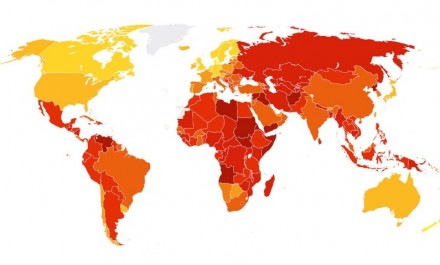Transparency International recently released its much anticipated Corruption Perceptions Index for 2016. This global index ranks countries by their perceived levels of corruption, on a scale of 0 (highly corrupt) to 100 (very clean). According to the Index, “More countries declined than improved in this year’s results, showing the urgent need for committed action to thwart corruption.”
With global corruption on the rise and a call for increased anti-corruption enforcement, it’s important to know where business practices are corrupt and how that could affect you. Out of 176 countries and territories measured in the Index, here are the top and bottom 10 countries (with their perceived level of corruption in parenthesis).
Top 10: Least Corrupt Countries
- Denmark (90)
- New Zealand (90)
- Finland (89)
- Sweden (88)
- Switzerland (86)
- Norway (85)
- Singapore (84)
- Netherlands (83)
- Canada (82)
- Germany (81)
Bottom 10: Most Corrupt Countries
- Venezuela (17)
- Guinea-Bissau (16)
- Afghanistan (15)
- Libya (14)
- Sudan (14)
- Yemen (14)
- Syria (13)
- North Korea (12)
- South Sudan (11)
- Somalia (10)
Following a year of increased global corruption, it’s not surprising that the first month of 2017 was the busiest January ever for an FCPA (Foreign Corrupt Practices Act) crackdown, with federal enforcement increasingly on the lookout for American companies engaging in corrupt practices overseas. Called an “FCPA enforcement blowout” by the FCPA Blog, this January saw six companies pay a combined total of more than $250 million to settle FCPA-related offenses – and it’s not just companies being called to task. Seven individuals were also part of the enforcement blowout: two plead guilty, three were indicted by the DOJ and two were charged by the SEC – all for various acts of corruption abroad.
To protect your business in this heightened era of corruption awareness, it’s critical to comply with far-reaching FCPA anti-bribery and corruption requirements. U.S. companies with offices or employees located overseas must provide those workers with compliance training programs that explain FCPA rules and obligations in their native language. Accurate translations and a commitment to compliance are key parts of maintaining a corruption-free global workforce.
Distributing English-only policies instead of professional translations can seriously backfire if any bribery or corrupt behavior takes place abroad. As we’ve seen from the first few weeks of the new year, non-compliance with the FCPA can be very bad for business.
Your best bet is to provide appropriate FCPA compliance training during the onboarding process – especially if you’re doing business in any of the countries categorized as high risk by the 2016 Corruption Perceptions Index. To ensure employees’ full comprehension, provide this information in a legally binding document in their native language.


